[EDITED BY: GRIFFIN SHERIDAN & SPENCER EVERHART]
Hello and welcome back to an all-new installment of BEAM FROM THE BOOTH brought to you by GRAND RAPIDS FILM SOCIETY!
THE MAN FROM ANOTHER PLACE: A DAVID LYNCH RETROSPECTIVE continues THIS WEDNESDAY (4/9) at 8pm with THE ELEPHANT MAN (1980).
A reminder for those who joined us for Eraserhead last week: don’t forget your PUNCH CARD so you can continue your journey towards a chance to win a year’s worth of free GRFS screenings! Likewise, don’t miss the next event in our Lynch series NEXT MONDAY (4/14) for a very special opportunity to see THE SHORT FILMS OF DAVID LYNCH on the big screen.
Speaking of rare opportunities, we’re hosting the West MI premiere screening of the Academy Award-winning documentary NO OTHER LAND (2024) this coming SUNDAY (4/13) at 2pm. At a time when discourse is one of our most cherished resources, we encourage all to join us for this important event.
In this issue, check out a couple of exciting upcoming community events and updates. Then, take a trip back to Forks, WA with Kyle Macciomei’s look back on Wealthy Theatre’s Twilight series.
YOU’RE INVITED!
The GVSU film/video program is inviting students, faculty, alumni, and members of the local media community to welcome the next generation of media professionals at the 2025 Capstone Celebration! Join in congratulating the graduating class of film majors during this ‘open house’-style event as they wrap up their time in the FVP program.
This gathering is not about looking for work, it’s about bringing these new grads into our community and networking with each other. If you belong to a local film and/or media organization, feel free to bring materials to share with other attendees.
RSVP using the QR code above or this link here.
INTRODUCING THE GRFS MEDIA CART
We’re launching something new for all you physical media enjoyers in our community!
This new MEDIA CART is a lending library that will be available at every GRFS screening starting at our screening of Elephant Man THIS WEDNESDAY (4/9)! This resource is completely free. All you need to do is sign the movie out with your name and email — simply, so if it’s been three months, we can remind you other people would love to listen to the Twilight commentary track.
On launch, the cart will already be home to all kinds of titles, and we would love to add more! If you’ve got duplicates from upgrading your Criterion discs, have come down from your overzealous Douglas Sirk obsession during quarantine, or just want to share the wealth for any reason, just bring your donations to any GRFS screening and we’ll take it from there.
This is a new endeavor for us, so as always, we welcome any feedback or ideas you have that would improve the experience!
LONG LIVE PHYSICAL MEDIA!
AN INTRODUCTION TO TWILIGHT: CONVERSATIONS FROM A CONVERT
[BY: KYLE MACCIOMEI]
I have a deep (possibly excessive) desire to promote and defend the CBS reality competition show Survivor. Not just because I’ve watched all 48 seasons and want to retroactively justify that time commitment (though, let’s be honest, that’s part of it), but because I genuinely believe Survivor holds real cultural significance. Over its 25-year run, the show has offered a surprisingly insightful reflection of American society — a kind of longitudinal study on what we value and how those values shift over time. Watch enough of it, and you’ll start to see patterns emerge around identity, conflict, relationships, sexuality, race, and politics. I bring all this up because I want you to understand where I’m coming from when I say this: Twilight is important.
Twilight means a lot of different things to a lot of different people. To me, it was a franchise I barely knew until 2024. To Twi-Moms in the 2000s, it was a sensational book series that shattered records. To teenage girls in the 2010s, it was the gravitational center of all things romance, fanfiction, and teen celebrity. To E.L. James, it was the spark that ignited her revolutionary (and polarizing) erotic juggernaut Fifty Shades of Grey. To cinephiles, it’s often seen as a clumsy, low-effort attempt to ride the post-Harry Potter blockbuster wave. To critics of the Mormon faith, it’s a window into the sexually regressive, puritanical values of a conservative religion. And to a sizable group of mostly millennial women in Grand Rapids, it’s a chance to relive — maybe even reclaim — a cultural phenomenon.
I want to begin by acknowledging how odd it is that I am the one on-hand at Beam from the Booth to report on an event that is, quite frankly, not about me. Not really because I’m a man, but mostly because I’m a fresh newcomer with a lot more to learn. Still, I felt it was important that someone document what went down...and I volunteered to do so. I think, ideally, this piece would come from someone intimately familiar with the fandom; someone who could speak to the emotional gravity and cultural impact of the Twilight saga. So, full disclosure: I’ve never even read the books. What I can offer is a dispatch from the outside — a record for anyone who, like me, entered this world as a Twilight virgin.
A year ago, I had never heard of “Hoa Hoa Hoa.” I had no idea Dakota Fanning burns a baby. The phrase “cuck tent scene” meant nothing to me. And I certainly couldn’t begin to explain what it means to say, “He imprinted on her so they could become a pseudo-polyamorous couple.” I am new to this world—so please, be gentle.
The reason I’m new to all this (finally getting to the point) is because Wealthy Theatre gave me my first full Twilight experience — on the big screen, in a sold-out auditorium, surrounded by screaming fans. If you’ve been anywhere near the center of a Venn diagram that includes Grand Rapids locals, Twilight devotees, and cinephiles, then you already know about Wealthy’s now-legendary series of Twilight screenings: Twilight (April 16th, 2024); Twilight: Encore (June 7th, 2024); New Moon (Sept 3rd, 2024); Eclipse (Jan 7th, 2025)…and, finally, the overwhelming Saturday night double feature of Breaking Dawn Parts 1 & 2 (March 29th, 2025). It was intoxicating to be in that room every time, and anyone who was there knows exactly what I’m talking about.
In the world of American “interactive movie experiences,” two titans dominate the genre: the famous, sexy, and endlessly anticipat—ing Rocky Horror Picture Show (1975), and the abysmally terrible The Room (2003). Both are legendary for their rowdy crowds, shouted heckles, sing-alongs, and absurd props. But I would argue there’s a new contender vying for cult status in this transgressive form of cinema-going: Twilight.
Even stepping into the lobby at Wealthy Theatre before one of these screenings was enough to know something special was happening. Themed t-shirts, baby Renesmee dolls, and a revival of 2010s-era Abercrombie & Fitch made it clear: this was not your average movie night.
Each time one of the films began, the theater would transform into a full-throttle roller coaster. Cheers erupted at victorious action beats, moans filled the room whenever Charlie or Carlisle graced the screen, and boos punctuated Jacob or Edward’s more ‘controlling-boyfriend’ moments. Sing-alongs to the films’ most beloved songs brought a genuine emotional swell, and the crowd would scream along with iconic lines. But above all, there was always space for laughter — whether it was at wooden line deliveries, janky CGI, or the glorious melodrama of immortal teenage angst. No one held back...and no one had to.
But here’s the thing: the joy of watching Twilight in this context isn’t as straightforward as mocking a bad movie. The Room is funny because it fails so transparently at what it’s trying to do. Every aspect — acting, directing, writing, cinematography — is so mind-bogglingly bad that laughter becomes inevitable. It’s pure schadenfreude: joy in witnessing failure.
Rocky Horror, on the other hand, is in on the joke. Yes, it’s low-budget and chaotic, but it’s also self-aware; a campy, queer, genre-loving musical that proudly wears its eccentricities on its sleeve. Watching Rocky Horror in a packed theater is an act of admiration — of upholding a tradition, not tearing something down.
Twilight occupies a messier middle ground. It absolutely contains things worth admonishing: its romanticization of toxic relationships, its irresponsible portrayal of Indigenous characters, and of course, the infamous “imprinting” subplot. This is where Jacob falls in love with Bella’s baby, but it’s totally fine because Edward reads his mind and says it’s not definitely grooming (comforting, right?). At the screenings, the audience was deeply in tune with the absurdity of these moments, laughing not just at the cringe but at the larger implications.
And yet, it would be reductive to lump these screenings in with The Room and call it a night. The energy in the auditorium was more than ironic detachment, it was often a sincere joy. Nostalgia plays a role in that, of course, giving Grand Rapids locals the rare chance to re-live the collective hysteria of Twilight opening nights. And that joy hits even harder when you realize how little space pop culture has allowed for open, unapologetic Twilight appreciation. Lord of the Rings, Harry Potter, even The Hunger Games still have mainstream avenues for engagement. Twilight, by contrast, exists mostly in memory — kept alive by those still willing to hold onto it: primarily (but not exclusively) millennial women.
So when Wealthy Theatre offered a chance to revisit that joy, it felt unique. It begs the question: why haven’t more of these screenings happened before? And the answer, at least in part, lies in cultural bias. Media made for, or loved by, teenage girls has consistently been met with derision — whether it’s One Direction, Gossip Girl, or Tiger Beat magazines. Even Taylor Swift, now finally embraced by the mainstream, had to achieve near-economic dominance to be taken seriously. Greta Gerwig made an entire film that is basically about this dynamic.
There’s real demand for these experiences, and it’s a mistake to dismiss them as shallow. What I witnessed was passionate, even introspective. Yes, there was booze and silly fun but also a chance for real reflection on the films’ themes and cultural legacy. Did you know Breaking Dawn: Part 1 contains a genuine abortion allegory, framed as Bella’s pregnancy slowly kills her? Or that the Volturi — those pale, powerful vampire overlords — are thinly veiled stand-ins for the Catholic Church and their hierarchical hegemony? Or that Bella and Edward’s relationship reads like a Mormon morality play, with death literally tied to pre-marital sex? Can you tell that Stephenie Meyer is Mormon?!
This is why Twilight matters. It’s not “high art,” but it doesn’t need to be. It’s a portal into exciting conversations about gender, fantasy, romance, and religion. To dismiss it because teenage girls loved it is to miss the point entirely. The laughter at Wealthy wasn’t trivial — it was layered. Yes, the films are messy. Yes, the pacing is weird. And yes, it is genuinely disturbing that Jacob becomes the chaperone of Renesmee’s sexual development. But Twilight also commits to romance, heartbreak, and longing with a full heart...and the infamous “cuck tent scene” remains one of the most hilariously electric love triangle moments in modern cinema.
I’m a convert. Twilight is ridiculous, tender, terrible, and iconic. It’s all of these at once. I could go on for a while (e.g. Kristen Stewart and Robert Pattinson becoming some of the most compelling screen actors of their generation, or how the financial success of Twilight spurned a subgenre of fiction literature that is basically propping up the entire publishing industry, or how Jasper is canonically a former Confederate!?), but what matters most here for our readers is the local impact. That final sing-along to the credits of Breaking Dawn: Part 2, with a packed crowd belting it out through the montage, was pure cinema (you can relive it here). And if Wealthy Theatre ever takes us back to Forks, Washington, I hope you’ll join us. It’s worth it.
UPCOMING EVENTS
THE ELEPHANT MAN (Lynch, 1980)
WHAT: Part of THE MAN FROM ANOTHER PLACE: A DAVID LYNCH RETROSPECTIVE. Born with a congenital disorder, Joseph Merrick uses his disfigurement to earn a living as the "Elephant Man.” His rough exterior hides a refined soul, which he uses to teach the stodgy British upper class of the time a lesson about dignity.
WHEN: Wednesday, April 9th, 8:00pm
WHERE: The Wealthy Theatre
NO OTHER LAND (Abraham, Adra, Ballal, Szor, 2024)
WHAT: Made by a Palestinian-Israeli collective, this Academy Award winning documentary shows the destruction of the occupied West Bank's Masafer Yatta by Israeli soldiers and the alliance which develops between the Palestinian activist Basel and Israeli journalist Yuval.
WHEN: Sunday, April 13th, 2:00pm
WHERE: The Wealthy Theatre
THE SHORT FILMS OF DAVID LYNCH
WHAT: Part of THE MAN FROM ANOTHER PLACE: A DAVID LYNCH RETROSPECTIVE. New 2K digital restorations of six short films by Lynch: Six Men Getting Sick (1967), The Alphabet (1968), The Grandmother (1970), The Amputee, Version 1 and Version 2 (1974), and Premonitions Following an Evil Deed (1995).
WHEN: Monday, April 14th, 8:00pm
WHERE: The Wealthy Theatre
And so we’ve arrived at the end of another BEAM FROM THE BOOTH! We appreciate you taking the time to read it and truly hope you’ll continue to do so. Be sure to SUBSCRIBE to get each issue in your inbox every week, and stay up-to-date on all things GRFS.
Plus, join us on social media! We’d love to chat with everyone and hear YOUR OWN thoughts on everything above (you can also hop in the comments section below).
Know someone you think will dig BEAM FROM THE BOOTH? Send them our way!
Look for ISSUE #97 in your inbox NEXT WEEK!
Until then, friends...

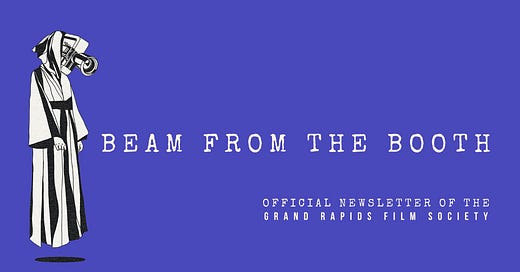


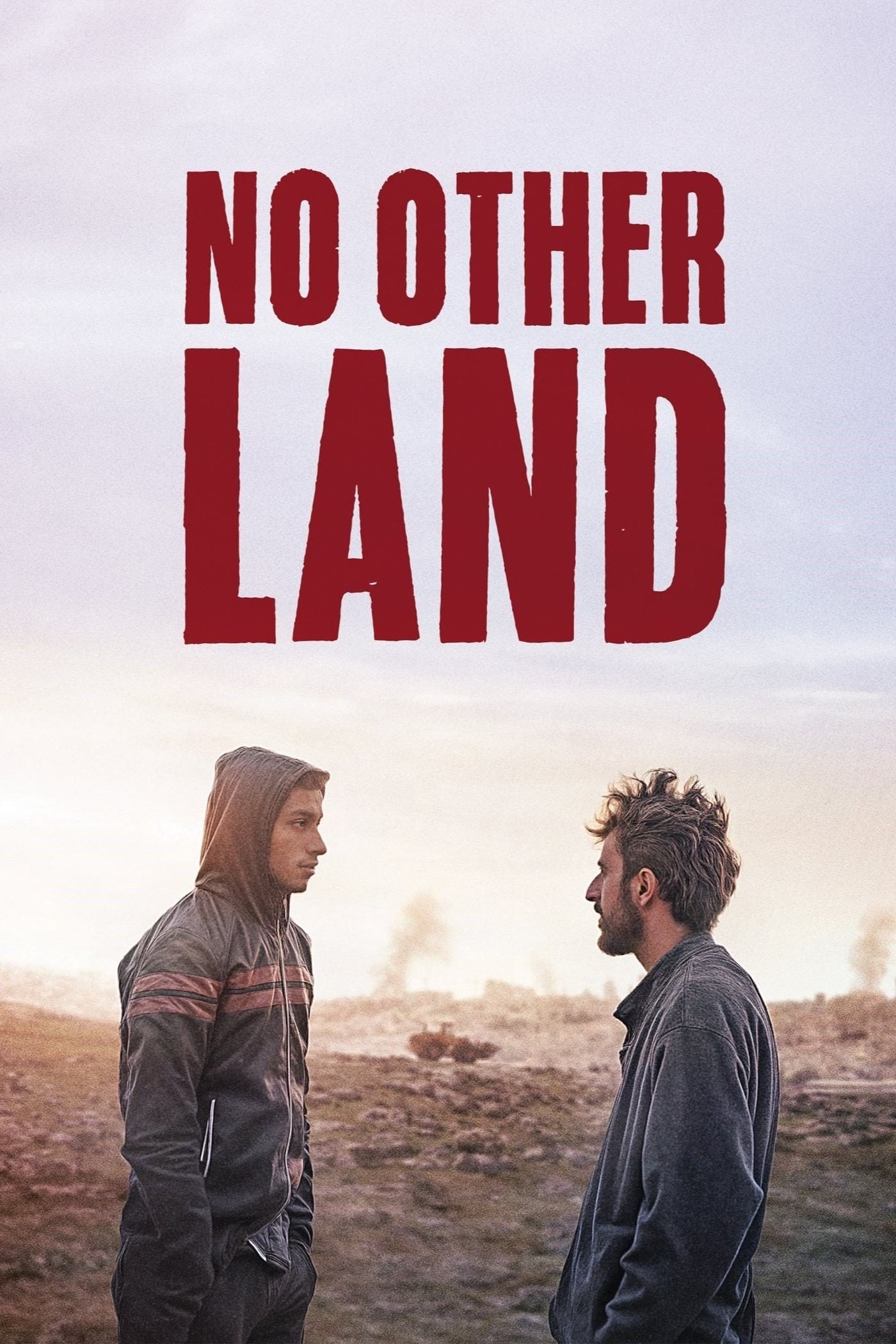
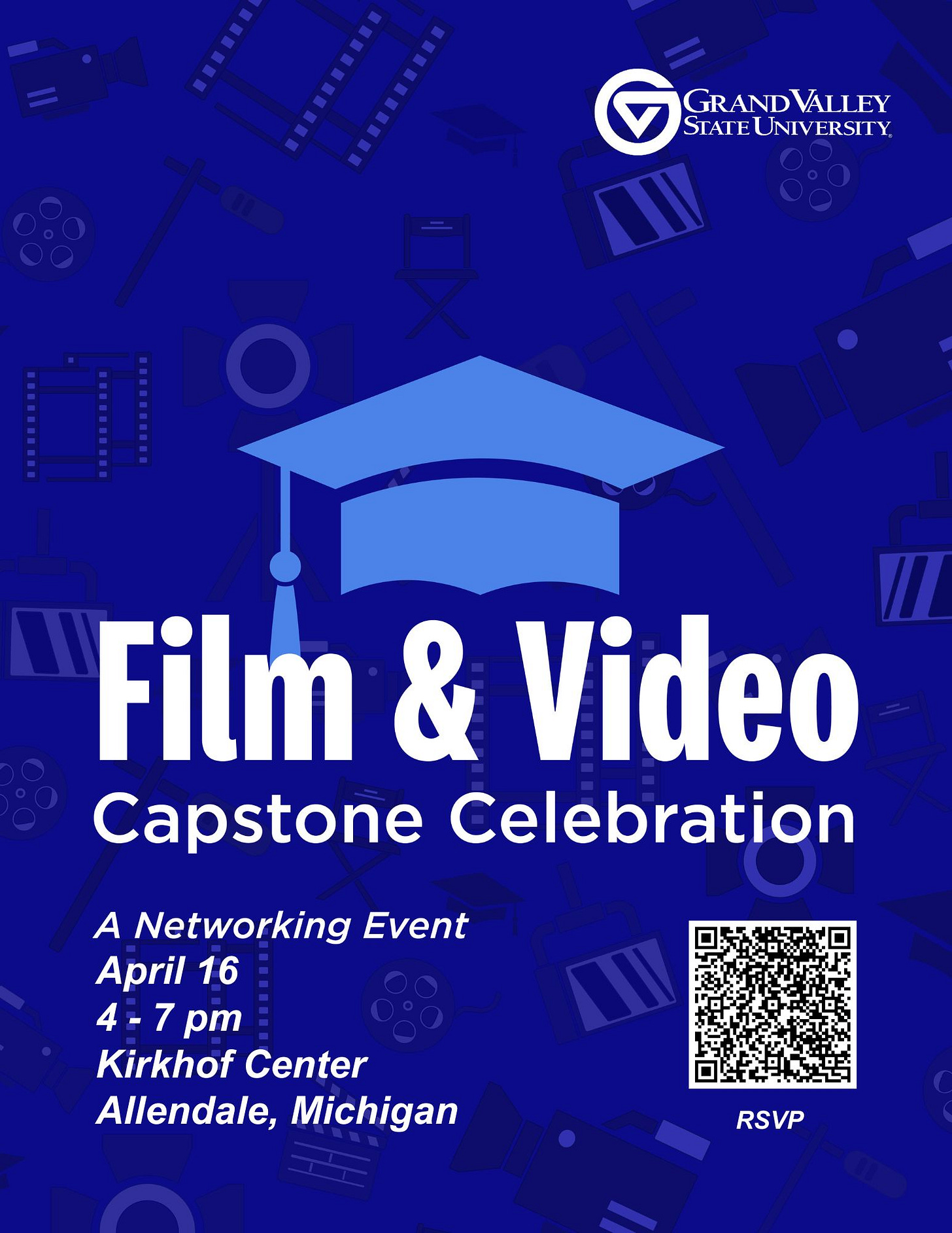

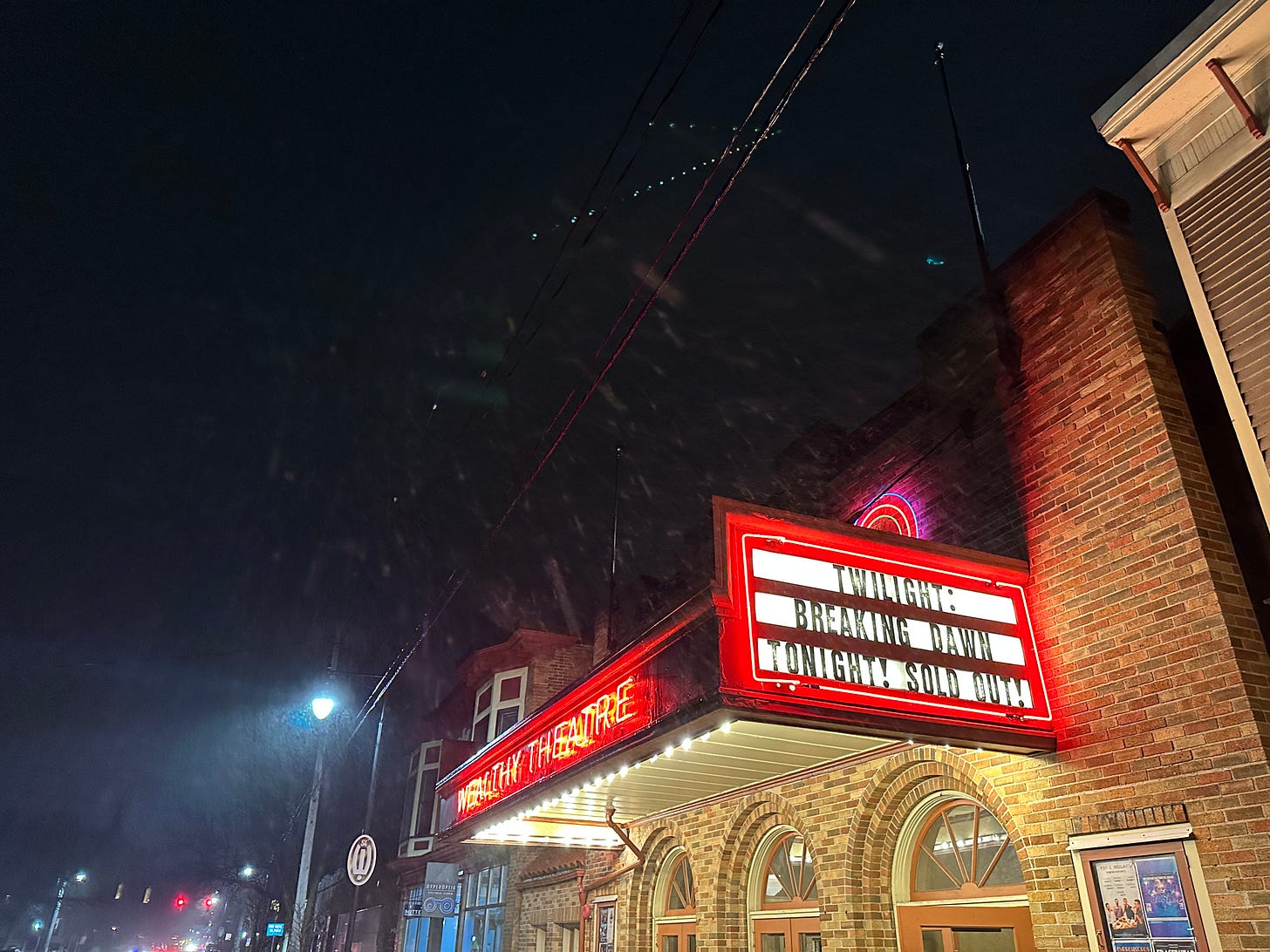
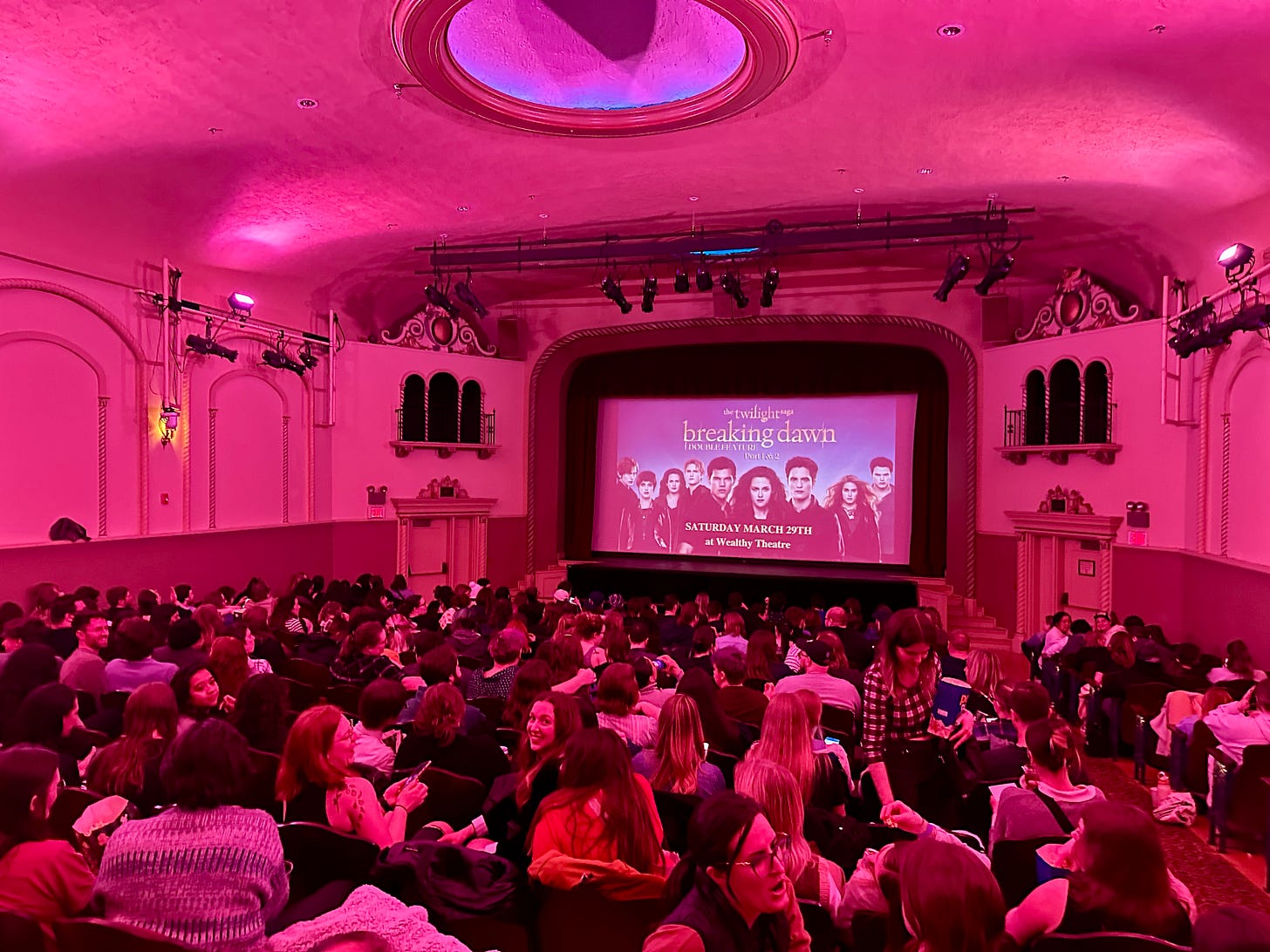
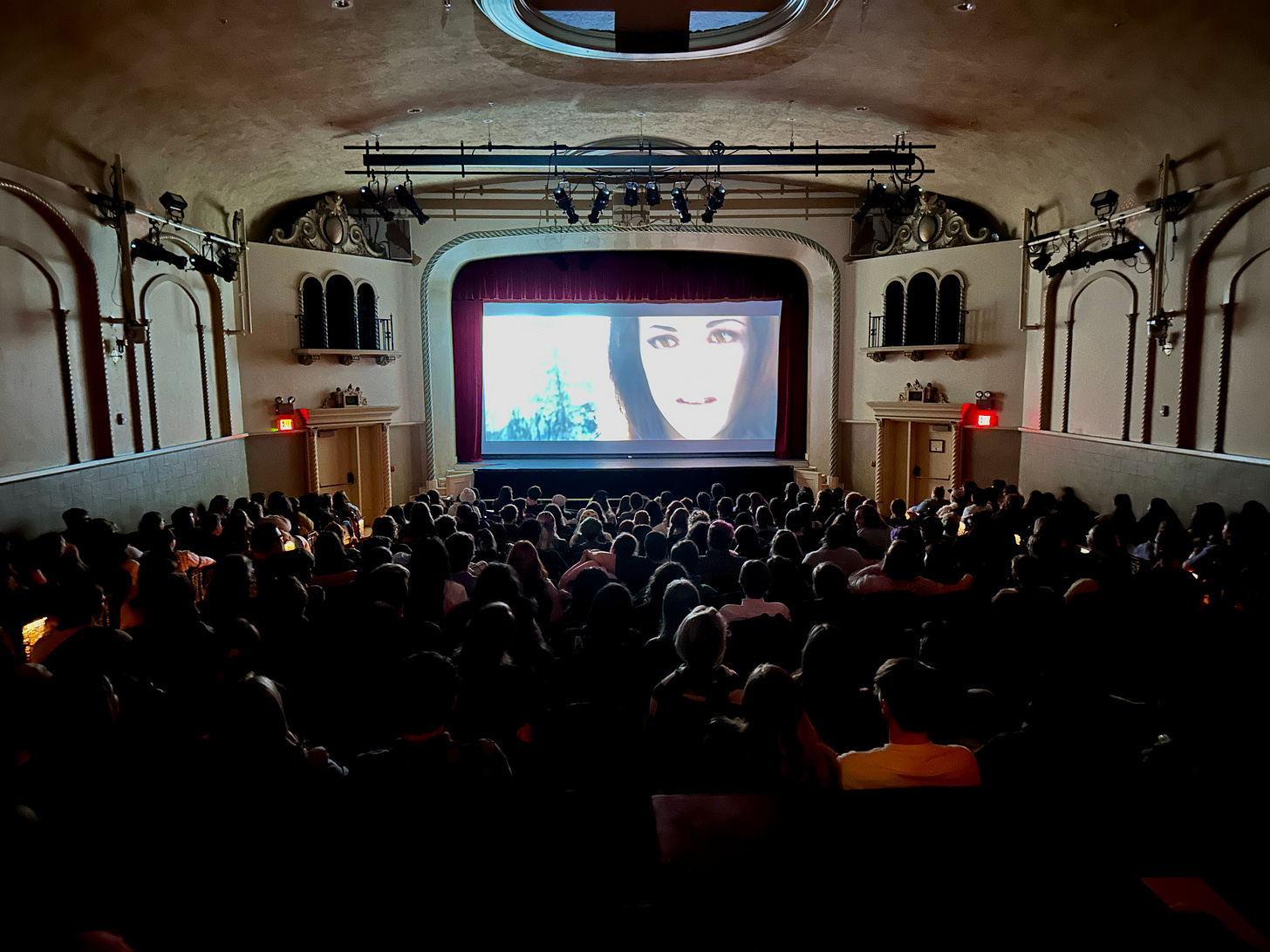

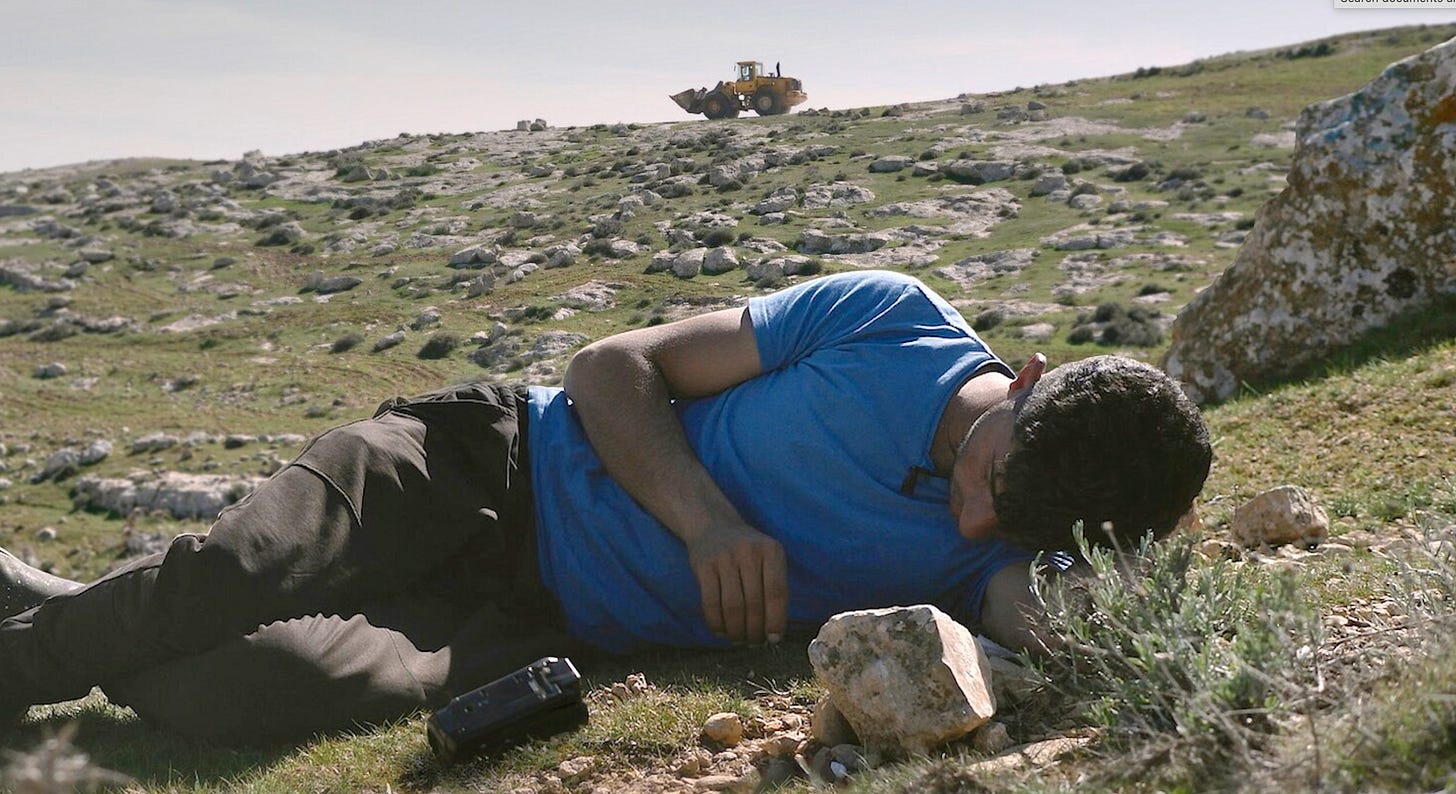
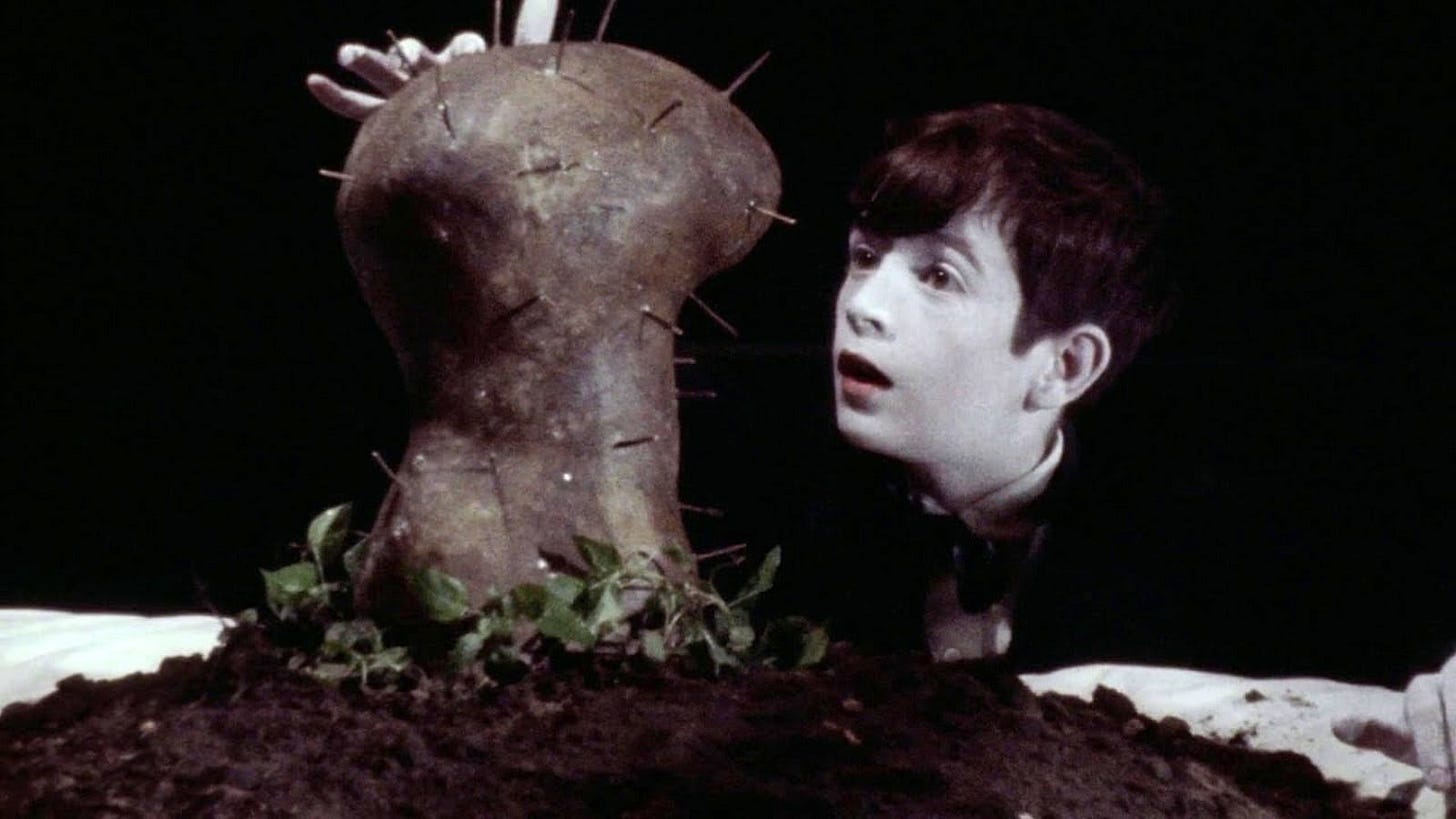


Wow! Excellent piece on the Twilight screenings! Really cool idea to document the screenings from an outsider's POV-- thank you Kyle!!